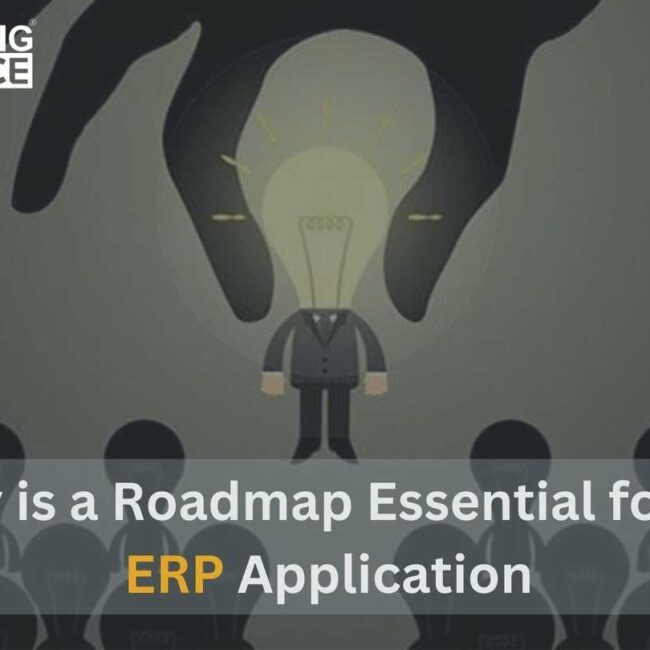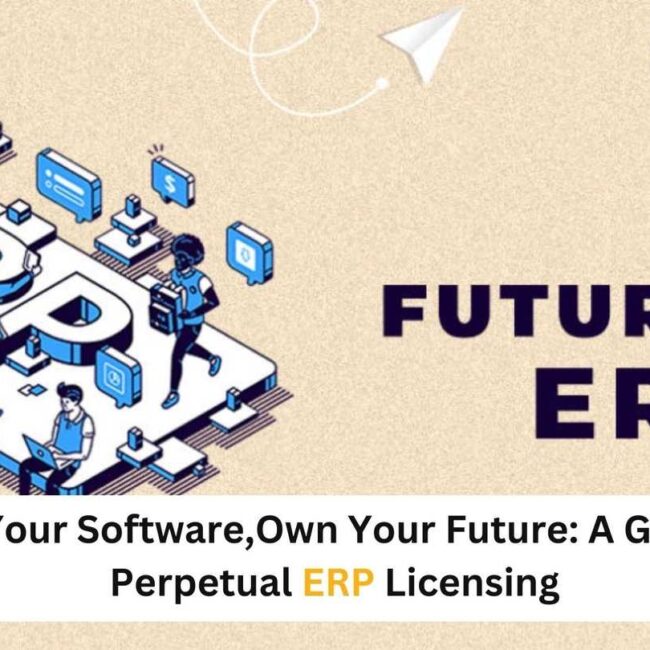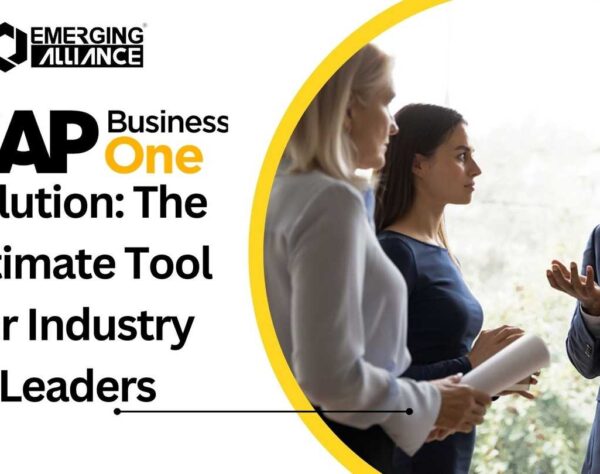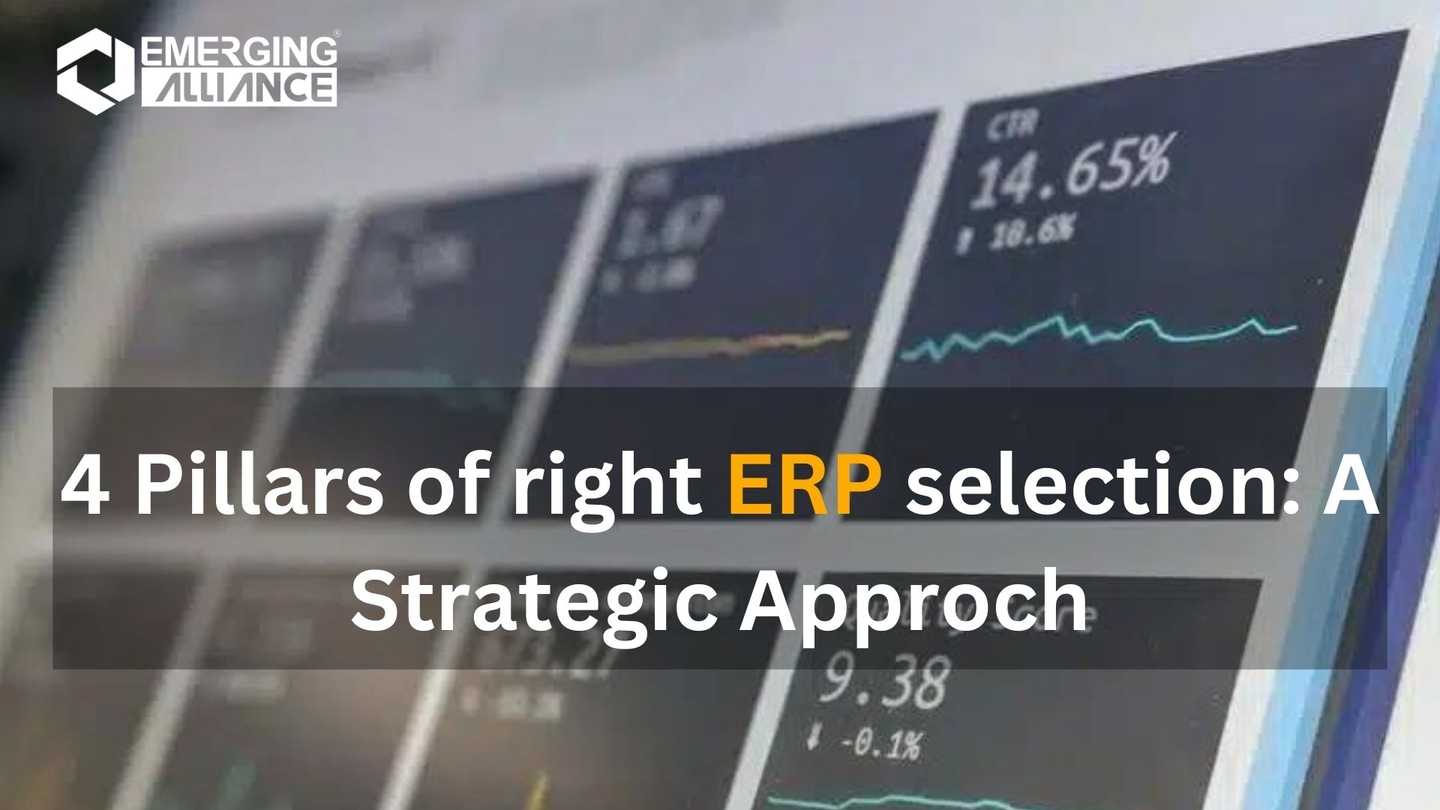
4 Pillars of Right ERP Selection: A Strategic Approach
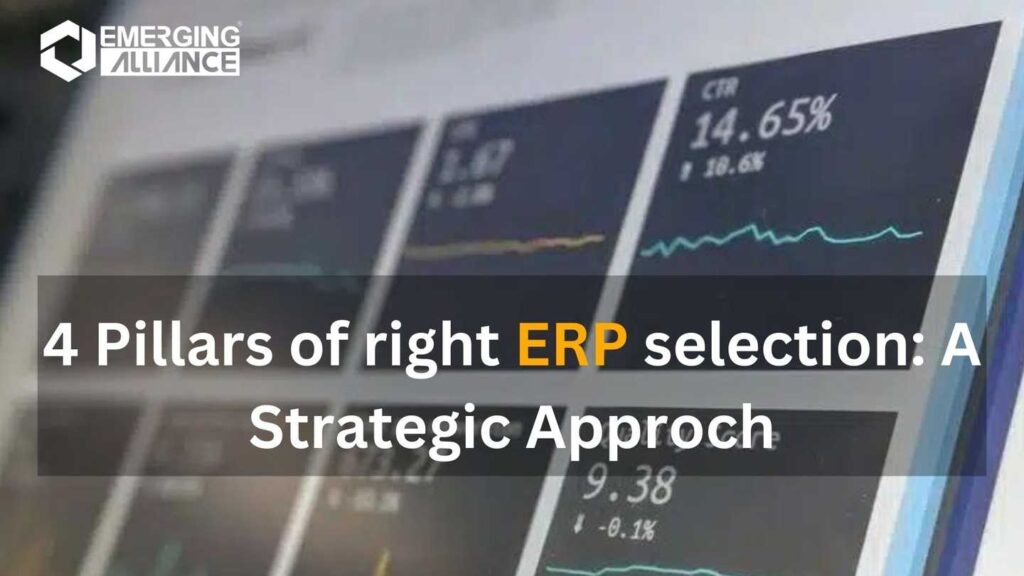
4 Key Considerations of Businesses for Selecting the Perfect ERP
Selecting the right Enterprise Resource Planning (ERP) system holds immense potential for any business. A wisely chosen ERP can revolutionize operations, boost efficiency, and propel growth. However, amidst the plethora of options available, ensuring you make the correct decision can be daunting. To navigate this intricate process effectively, focus on four critical parameters: ERP reach, ERP ecosystem, ERP roadmap, and the financial health of the ERP provider.
Essential Aspects of Choosing the Right ERP
ERP Reach
When assessing the right ERP system, prioritize its reach within your organization. ERP reach denotes the extent to which the system integrates with various departments and processes. A suitable ERP should offer a unified solution covering crucial functions such as finance, HR, supply chain management, and CRM.
Significance of Right ERP Reach:
Operational Efficiency with ERP:
A broad reach streamlines integration across departments, reducing reliance on multiple systems and breaking down data silos.
Real-time Insights with the ERP:
Comprehensive integration facilitates seamless data sharing and reporting, empowering better decision-making.
Scalability:
A Right ERP with extensive reach can effortlessly adapt to accommodate new departments and processes as your business expands.
Assessing ERP Reach:
Module Coverage:
Ensure the ERP encompasses modules for all essential business functions.
Integration Capabilities:
Verify its ability to integrate with existing and future systems seamlessly.
User Accessibility:
Confirm that the ERP can support the required user base across different locations effectively.
Right ERP Ecosystem: A Comprehensive Overview
Understanding the ERP ecosystem is vital for maximizing ERP benefits. Key components include:
Training ERP Hub:
A centralized hub for comprehensive training programs ensures users are proficient in all aspects of the ERP system, from basics to advanced functionalities.
Expanding User Base:
Boosting the number of proficient users through thorough onboarding, continuous education, and establishing internal user communities for knowledge sharing.
Multiple Implementation Strategies:
Customizing ERP implementation to business needs via phased, modular, or tailored approaches enhances efficiency and aligns with the organization’s workflow.
By prioritizing robust training, expanding user proficiency, and adopting flexible implementation strategies, businesses can cultivate an effective ERP ecosystem that elevates efficiency, decision-making, and competitiveness.
ERP Roadmap
Understanding the ERP roadmap entails examining the provider’s future development plans. This provides insights into the longevity and ongoing enhancement of the ERP system. Key considerations include:
Innovation and Updates:
Ensuring the ERP provider is committed to regular updates and innovations, which introduce new features, enhance security, and improve performance.
Future-Proofing:
Aligning the ERP provider’s roadmap with emerging technologies and industry trends, such as advancements in AI, ML, and IoT.
Customer Feedback:
A provider that values customer input and incorporates it into development plans signifies a user-centric approach, ensuring the ERP system evolves to meet user needs.
Evaluating the ERP roadmap aids in selecting a solution that remains relevant and supports long-term business goals.
Financial Stability of the ERP Provider
The financial stability of the ERP provider is a critical factor often overlooked. The sustainability of your ERP system depends significantly on the financial well-being of the provider. Here’s why it matters:
Sustained Support and Development:
A financially stable company is more likely to continue providing support and investing in ERP system development, ensuring ongoing improvements and assistance.
Risk Mitigation:
Choosing an ERP provider with strong financials reduces the risk of the company going out of business or being unable to support your ERP system in the future.
Reputation and Trust:
Financial stability correlates with a company’s reputation and trustworthiness. A well-established, financially secure provider is more likely to have a track record of successful implementations and satisfied customers.
Considering the financial stability of the ERP provider helps mitigate risks and ensures your ERP system receives the necessary support and development for years to come.
If you would like to know more about our ERP services, please visit us at: https://www.emerging-alliance.com/
Join the ranks of the inquisitive – Delve into captivating content on our website and uncover more than you ever imagined!
Want to speak to an expert? Fill in the form below, and we will be in touch with you shortly!


